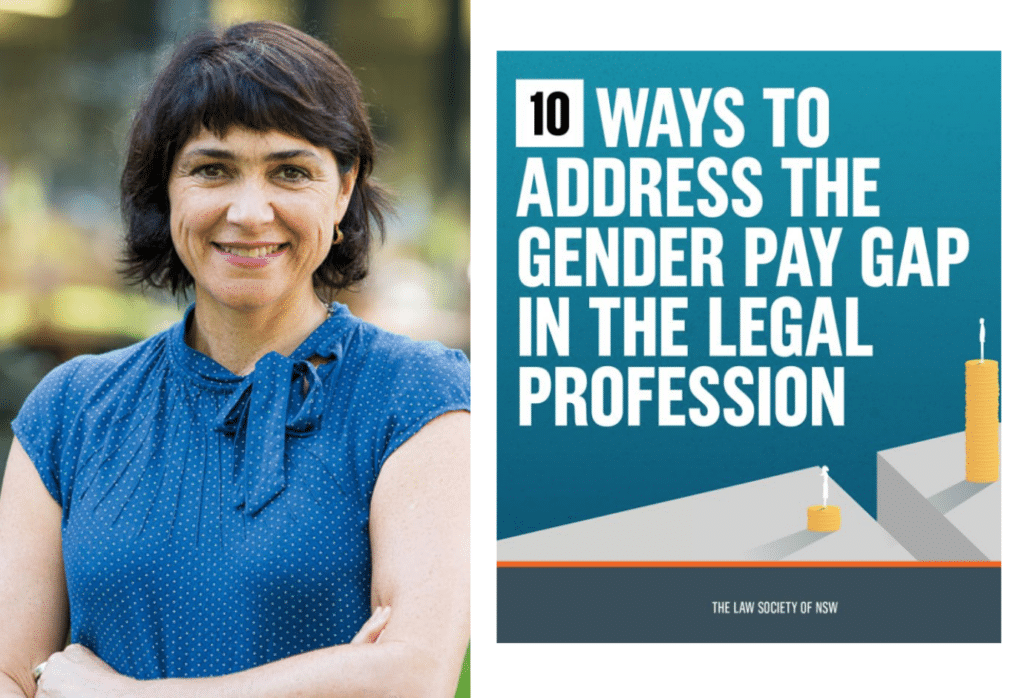The NSW legal profession has a gender pay gap problem, and the only way to fix it is to improve collection and analysis of data on remuneration, according to Australia’s new sex discrimination commissioner Dr Anna Cody.
Dr Cody, who spoke on Tuesday night at the launch of the Law Society of NSW’s new guidance resource, ‘Equitable Renumeration in the legal profession’, believes that measuring what is happen is the only way to close the pay gap.
“It’s also essential to adopt an intersectional approach to ensure that leadership and pay equity for all marginalised communities is achieved,” she said on Tuesday night in Sydney.
The new guidance resource provides law firms with ten ways they can help close the gender pay gap within the workplace, including better scrutiny of billing structures, increasing pay transparency, and making sure those who take advantage of flexible working arrangements are not penalised and prevented from advancing up the hierarchy.
Dr Cody used her keynote speech to highlight the importance of measuring the experience of historically marginalised people in the legal workforce.
“There are fundamental gaps in knowledge regarding the experience of Aboriginal and Torres Strait Islander solicitors, solicitors with disability, LGBTIQ+ solicitors, or those from culturally and racially marginalised backgrounds,” she said.
“In NSW, we know that 0.9 per cent of all solicitors are Aboriginal and/or Torres Strait Islander, out of a population representation of 3.4 per cent. However, beyond these statistics we don’t have clear and sufficient data to understand the experiences of this cohort and how we can improve leadership in that area.”
She also addressed the troubling findings from the 2022 Annual Profile of Solicitors in NSW, released in May this year, which revealed a significantly higher number of female solicitors were earning less than $150,000 (58 per cent), compared to male solicitors (47 per cent) – a figure which has remained since 2019.
Despite women making up more than half of all practising solicitors in NSW, they continue to be vastly underrepresented in positions of leadership.
“What Annual Profile has indicated was having women present in the legal system is not enough to ensure equitable renumeration,” Dr Cody said. “We used to think that once women graduated in sufficient numbers, that equality would occur as just making sense.”
Some firms and legal practices across NSW have been spearheading positive changes, implementing practical strategies that promote diversity and inclusion.
President of the Law Society, Cassandra Banks praised these legal practices for “…know[ing] the benefits of supporting all their talent.”
“Equitable remuneration will not be achieved without commitment and deliberate actions across the profession,” she said at the launch on Tuesday night. “It is clear that as a profession, we need to maintain a focus on this work, including gender equality, as a matter of priority.”
Dr Cody said that firms need to have specific goals to work towards, such as an explicit examination into reasons for a lack of diversity within a firm, changing the criteria for leadership positions, and implementing gender action plans.
“We know that a lack of gender and pay equity and a lack of diversity is one of the causes of unsafe workplaces,” she said, noting the recent amendments made to the Sex Discrimination Act to introduce a duty on employers to stop workplace sexual harassment and sex-based discrimination.
“Experiences of workplace sexual harassment can be one of the most damaging barriers to career success, progression and job satisfaction for women and gender diverse people,” Cody added.
“The workplace gender equality act… will also expand employer reporting requirements on prevention and response to sexual harassment, harassment on the ground of sex and discrimination in the workplace.”
Banks said she is confident the latest resource will give leaders within the legal sector “useful tools to enable them to develop and encourage their legal talent while taking advantage of the value and business imperative that gender equal workplaces represent.”


